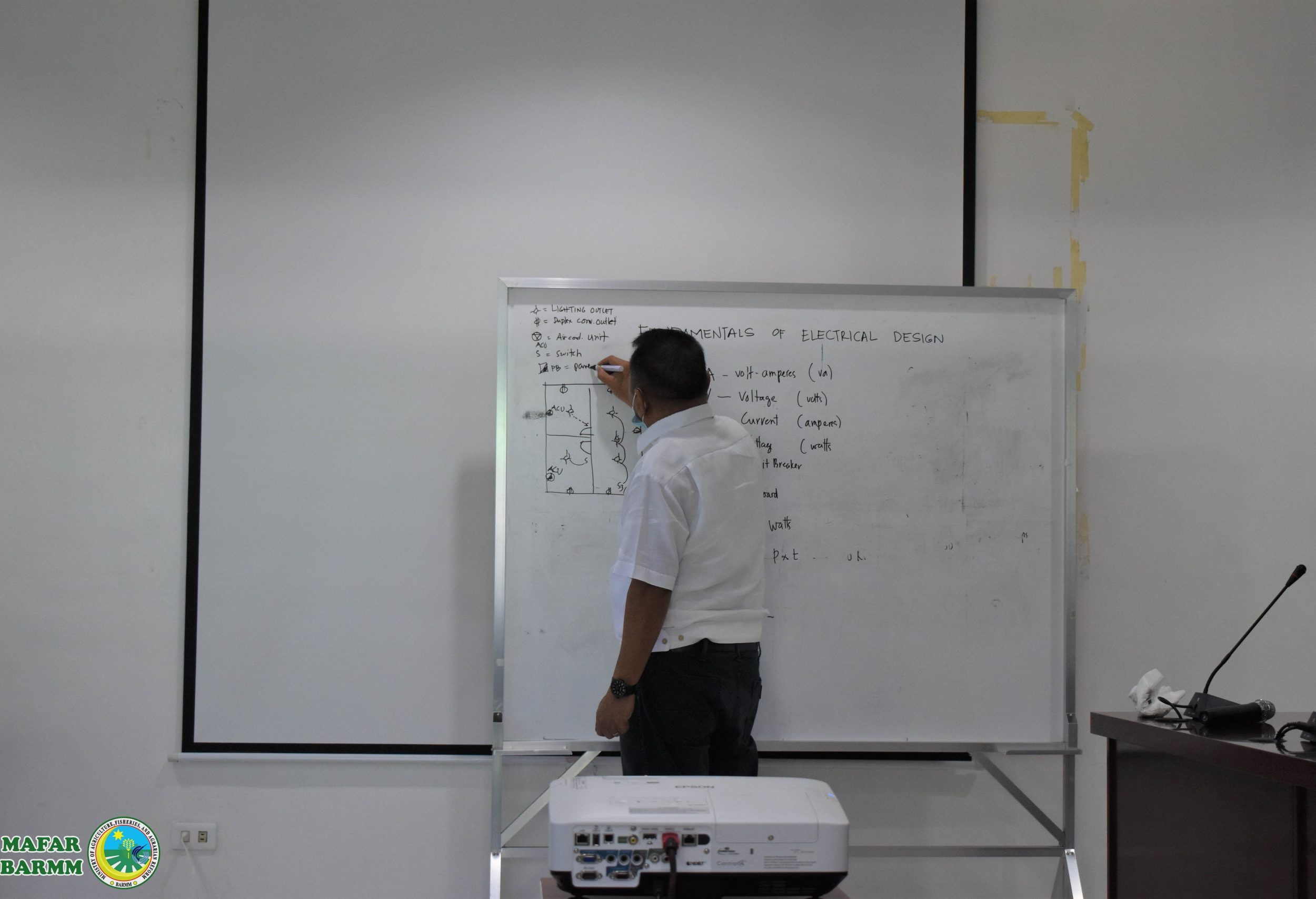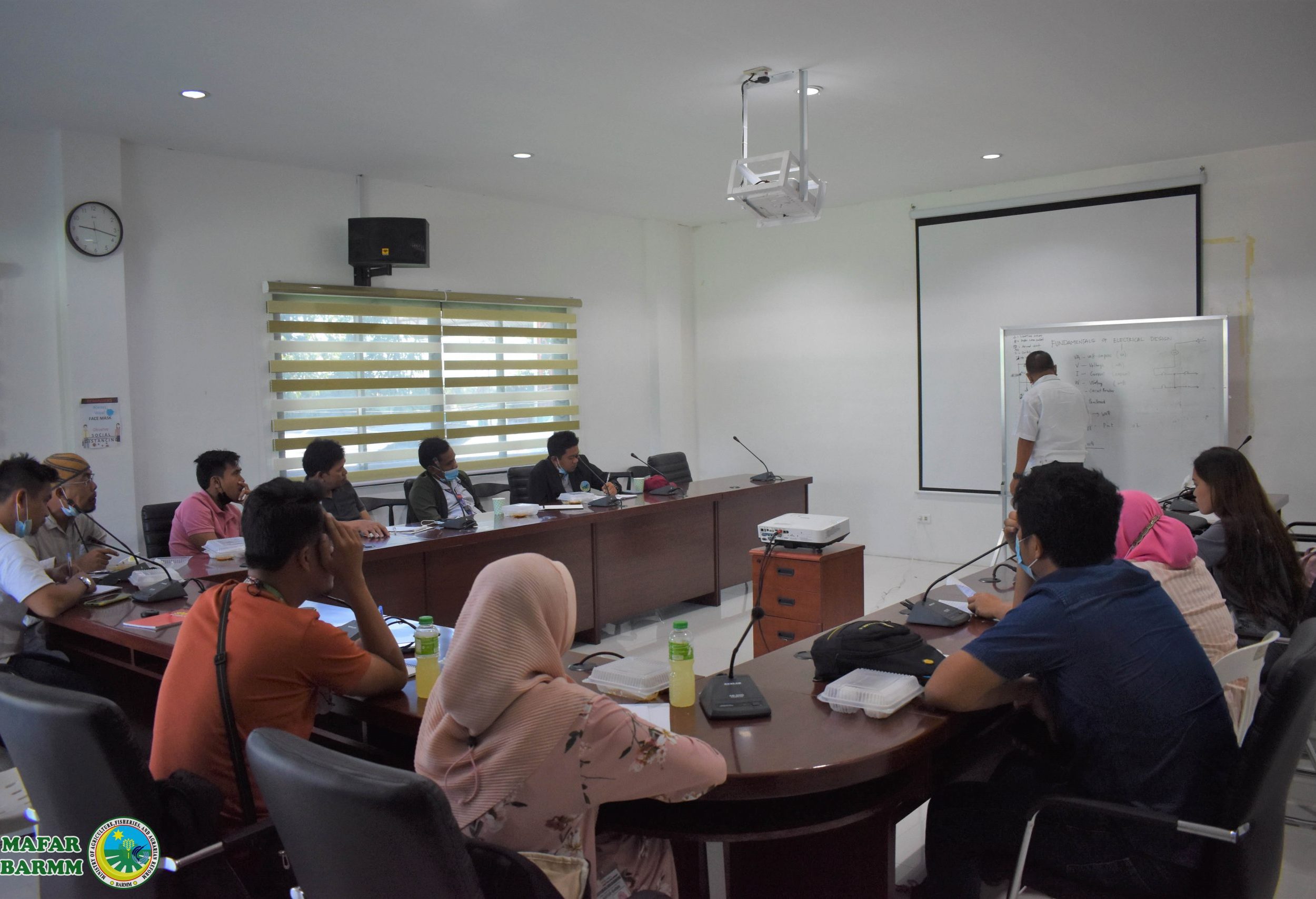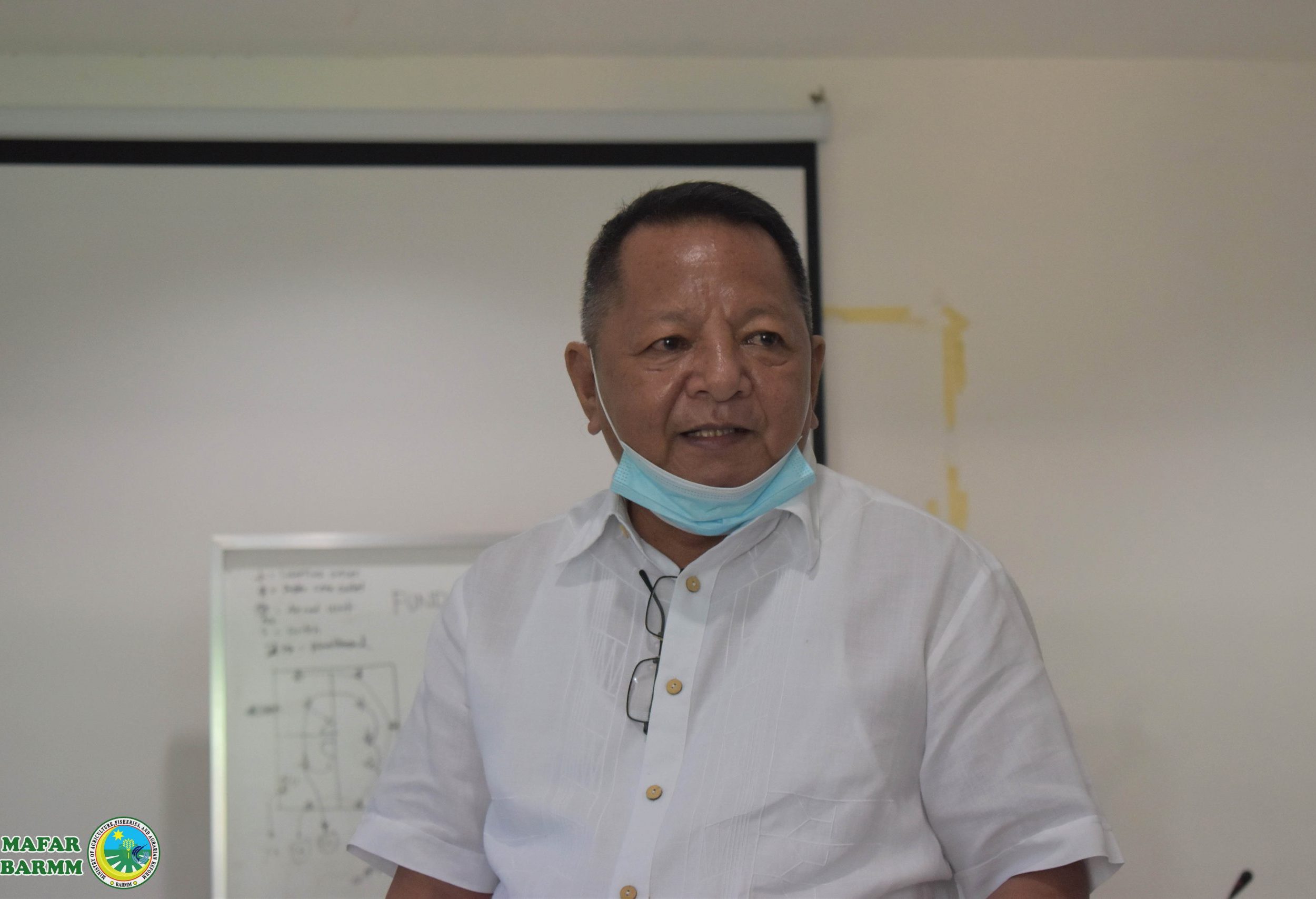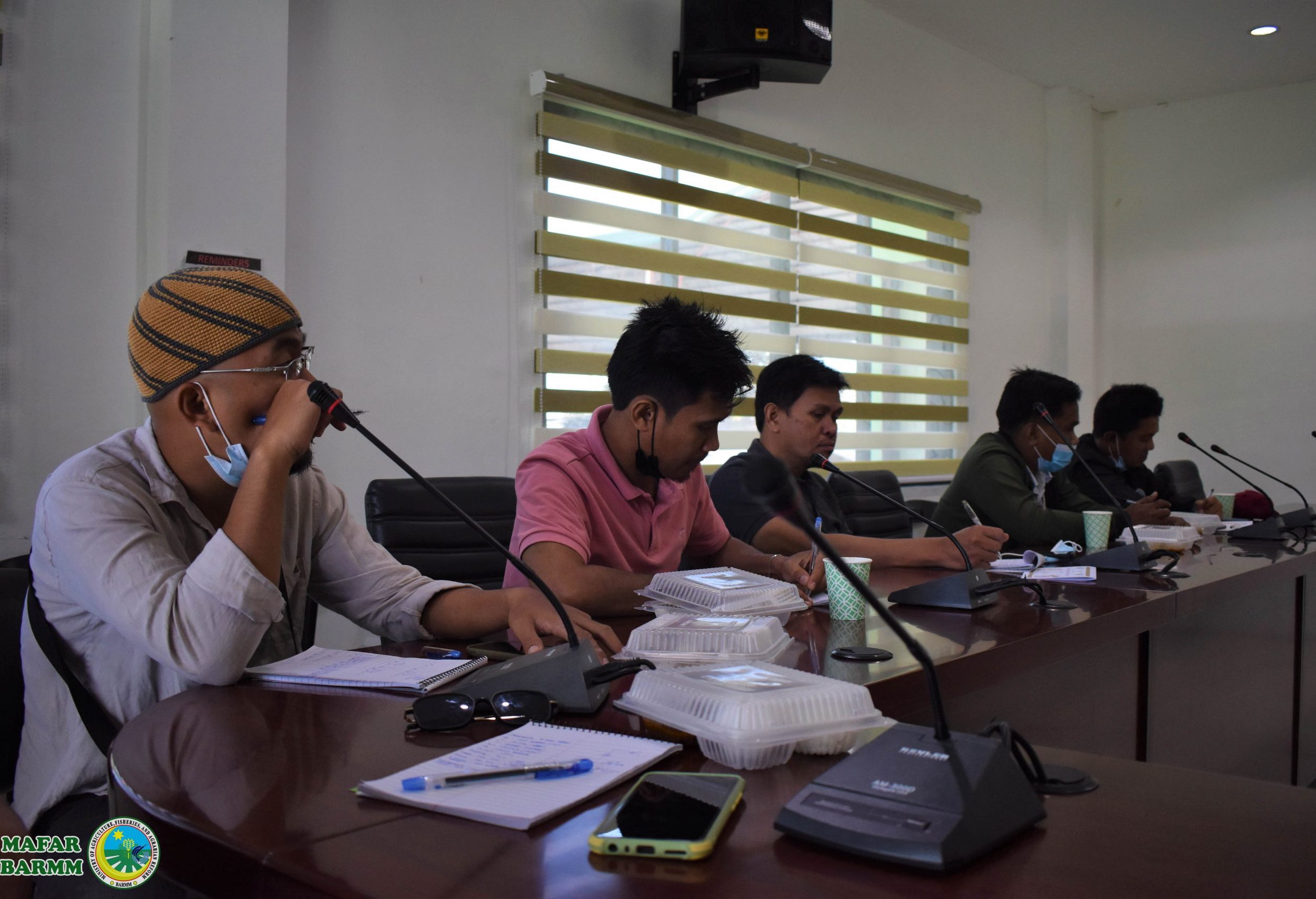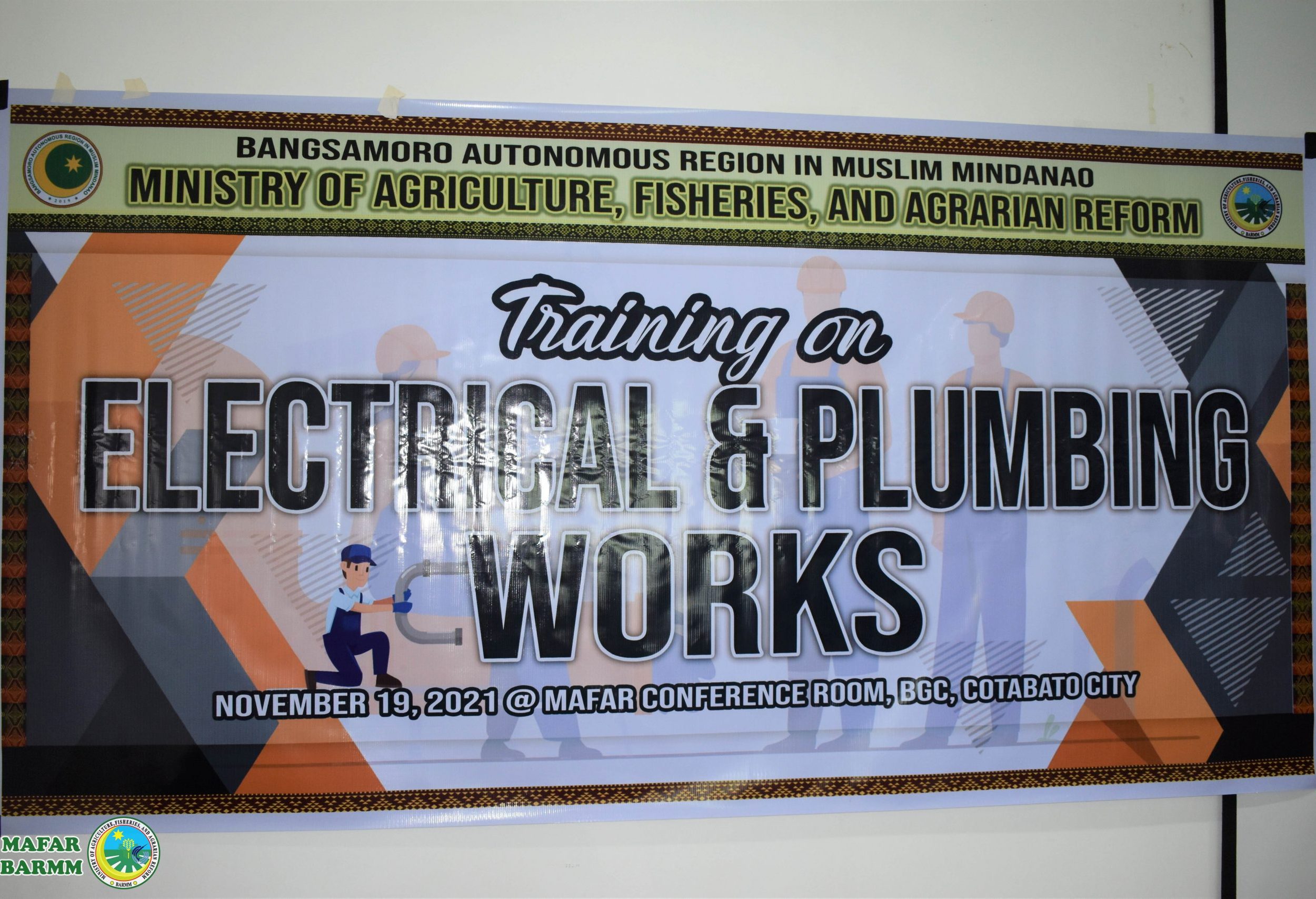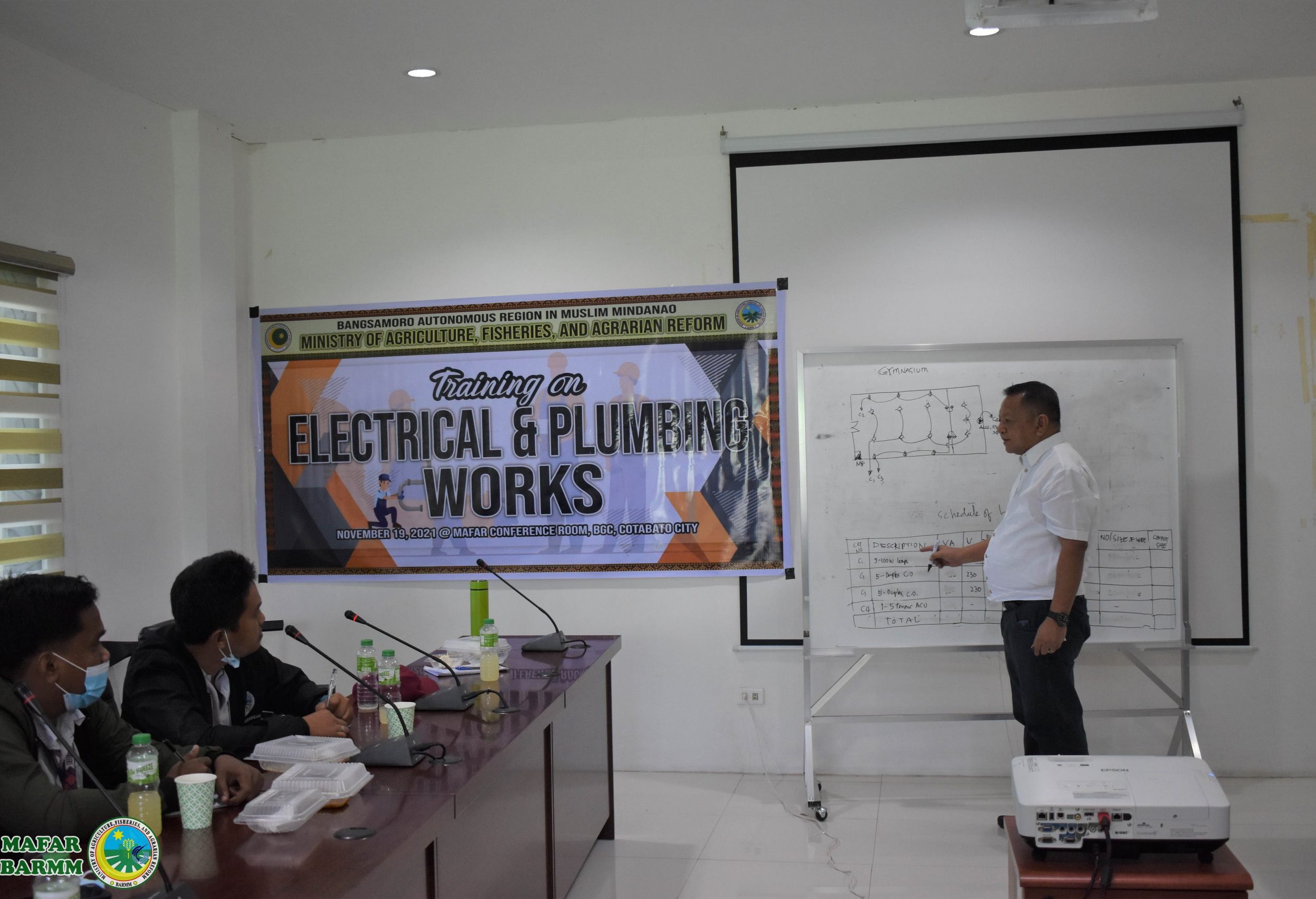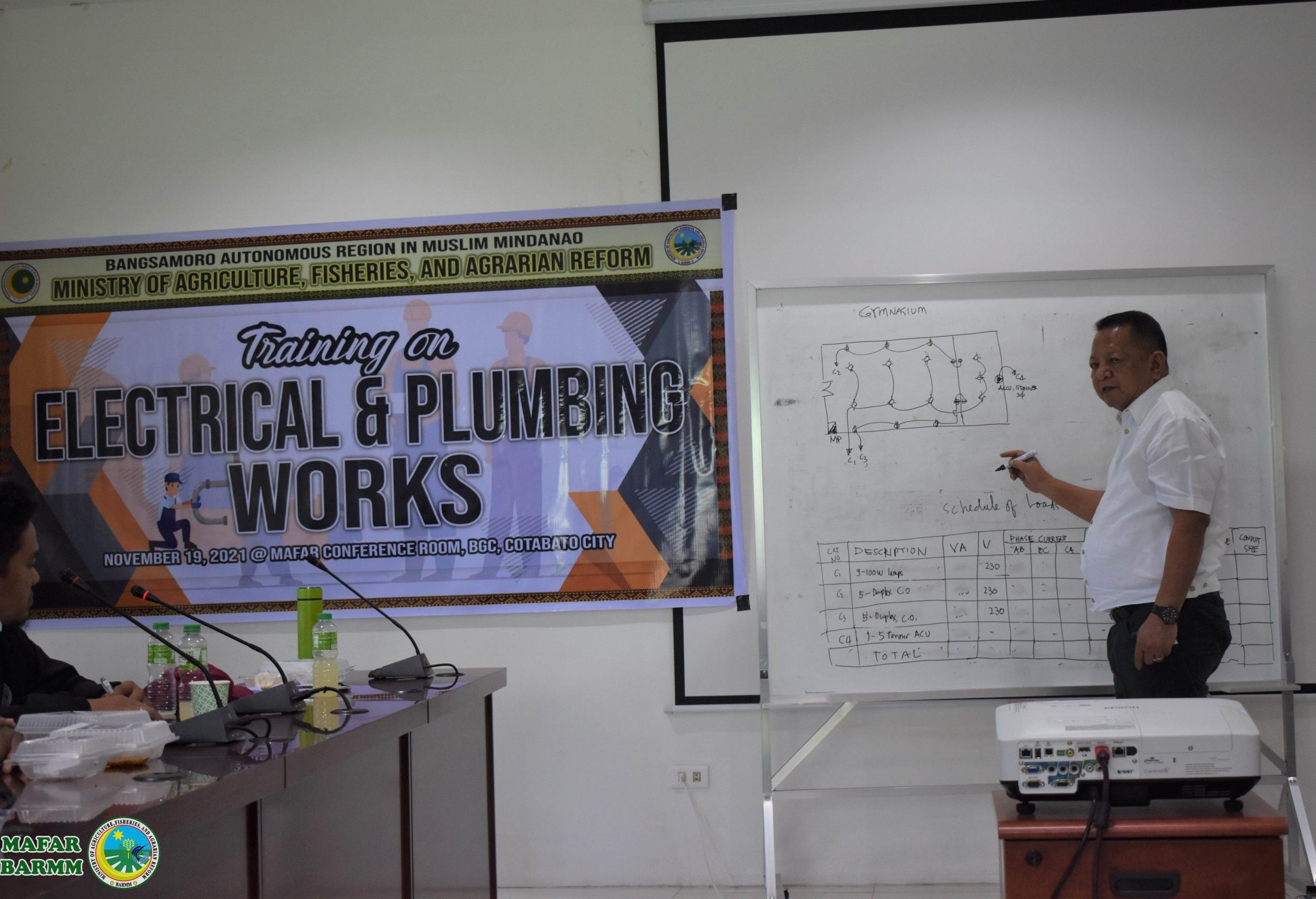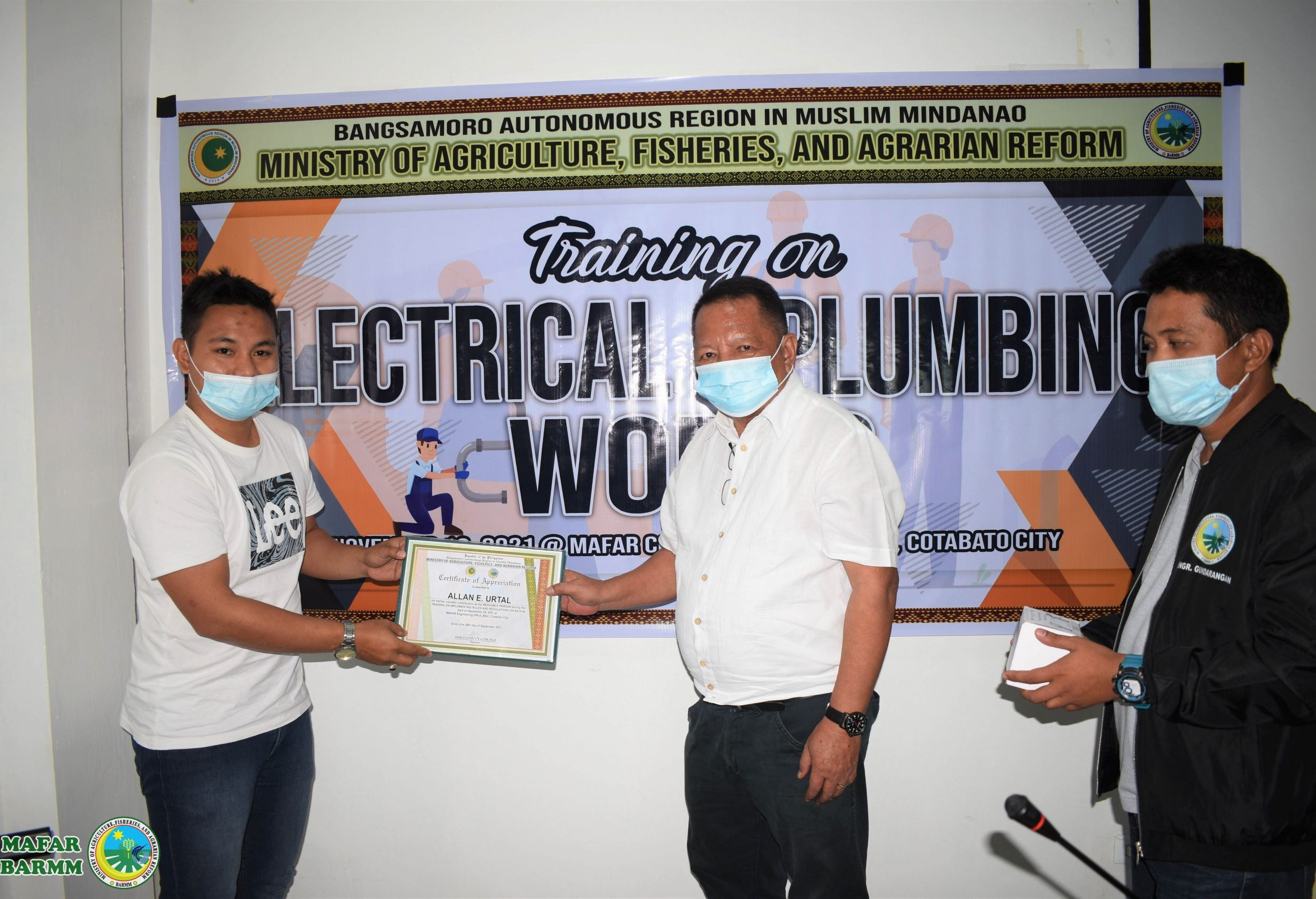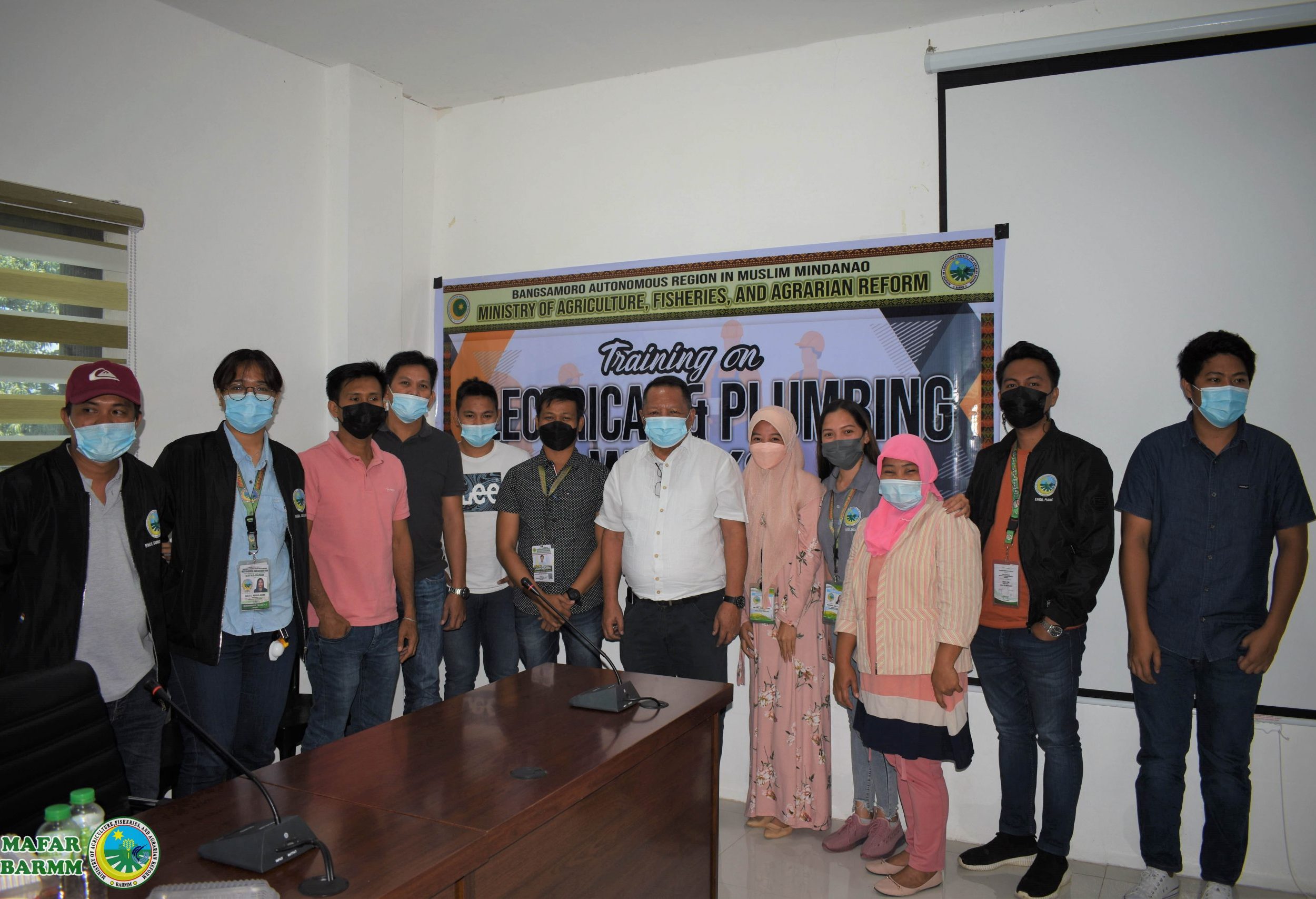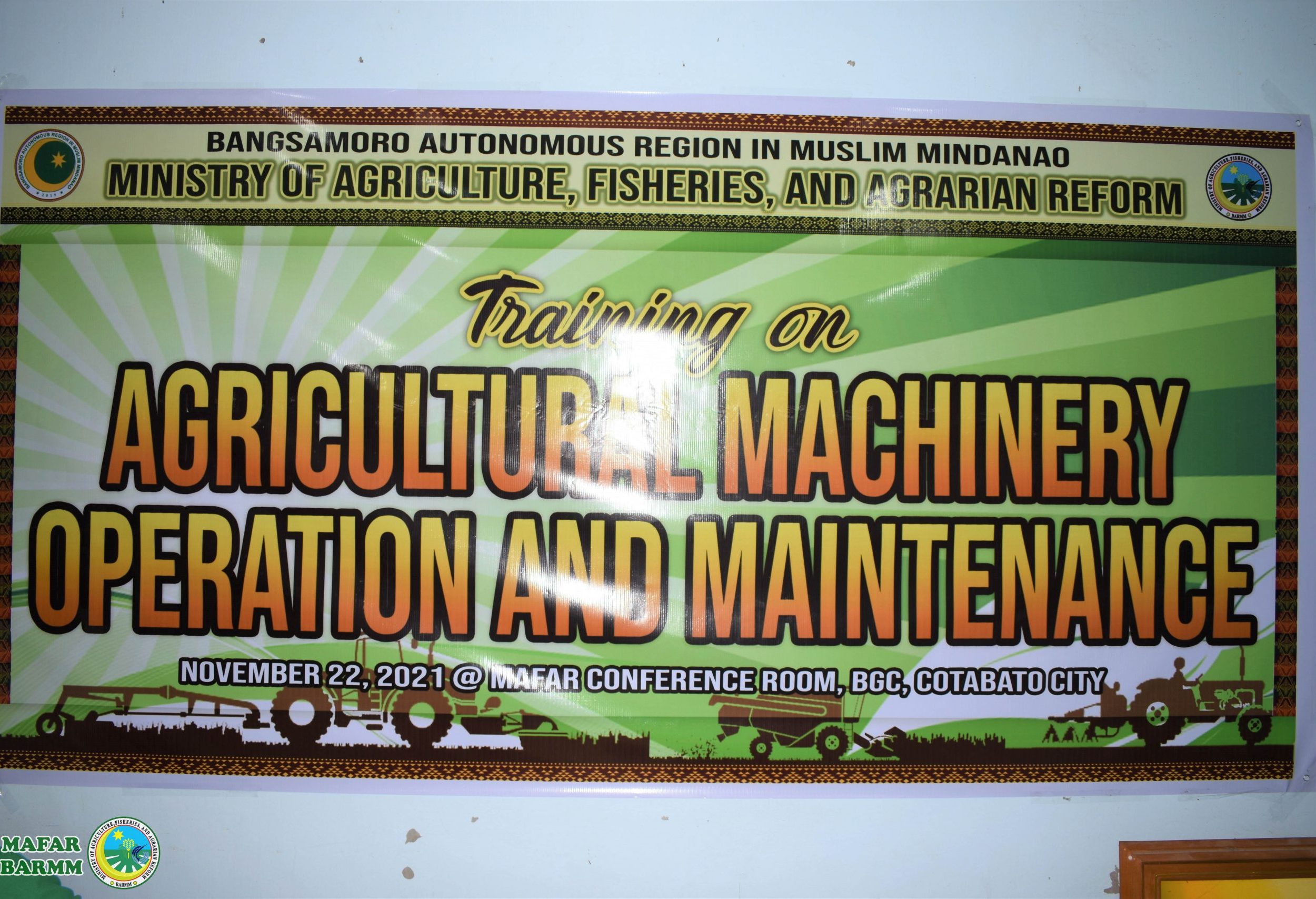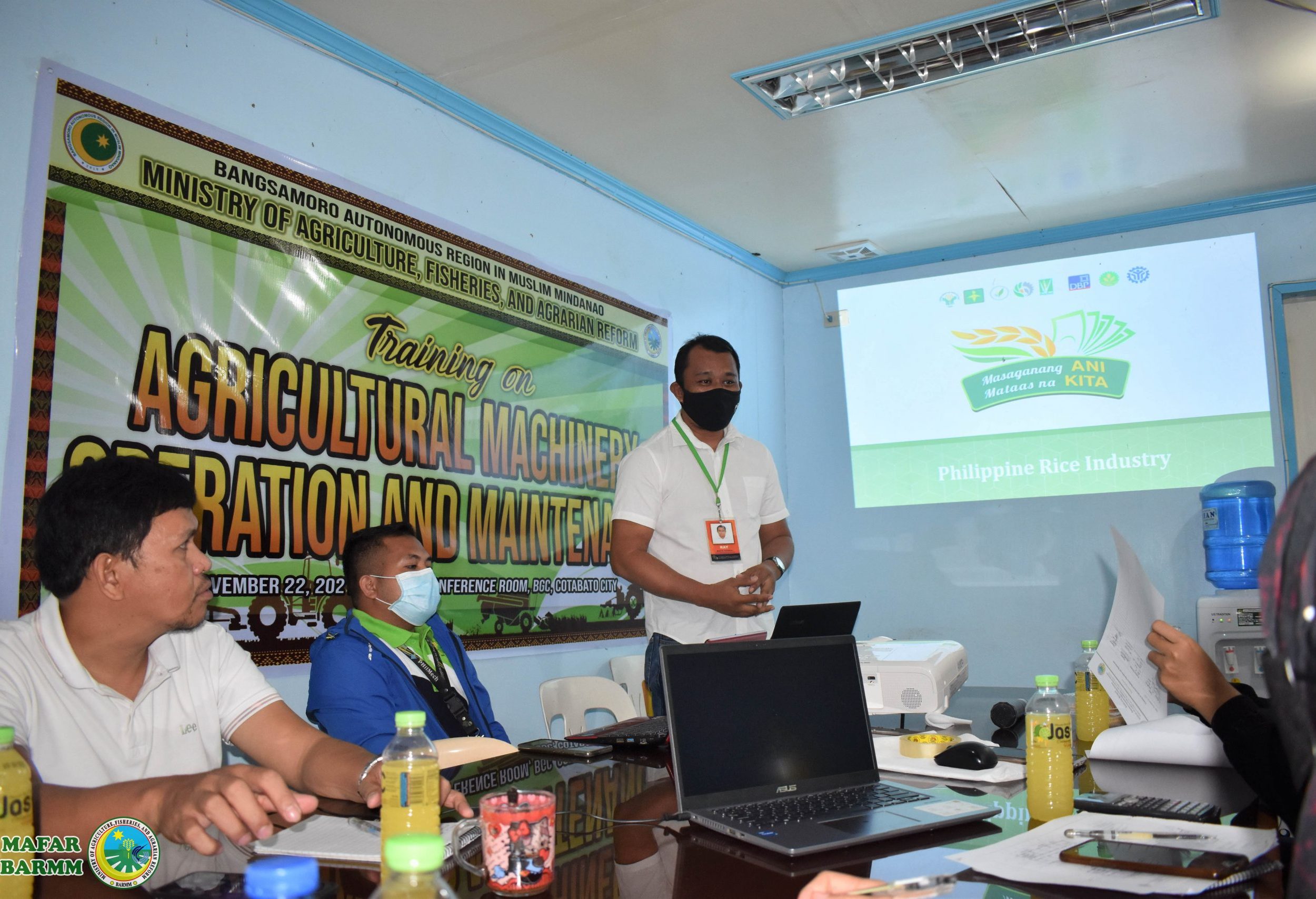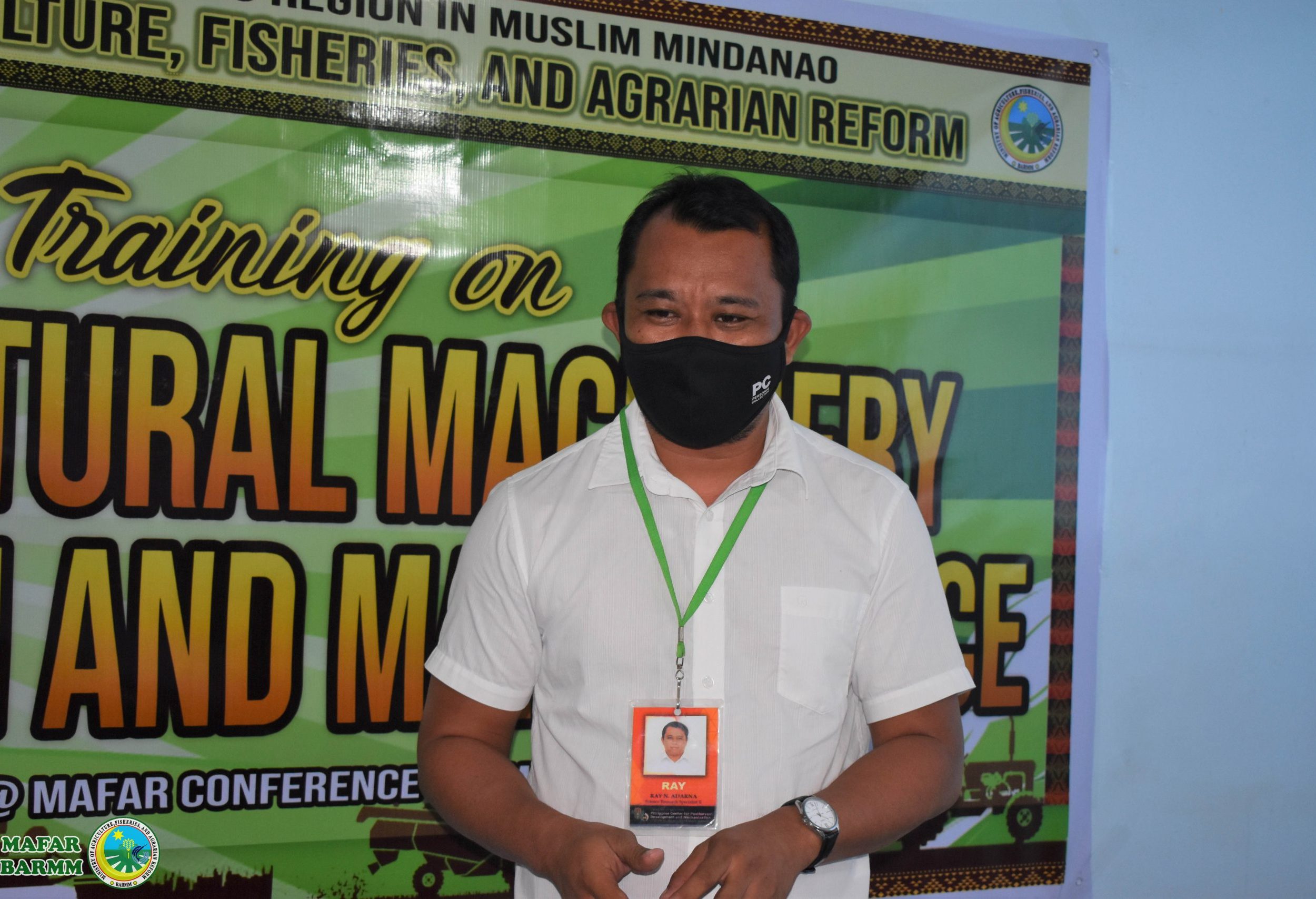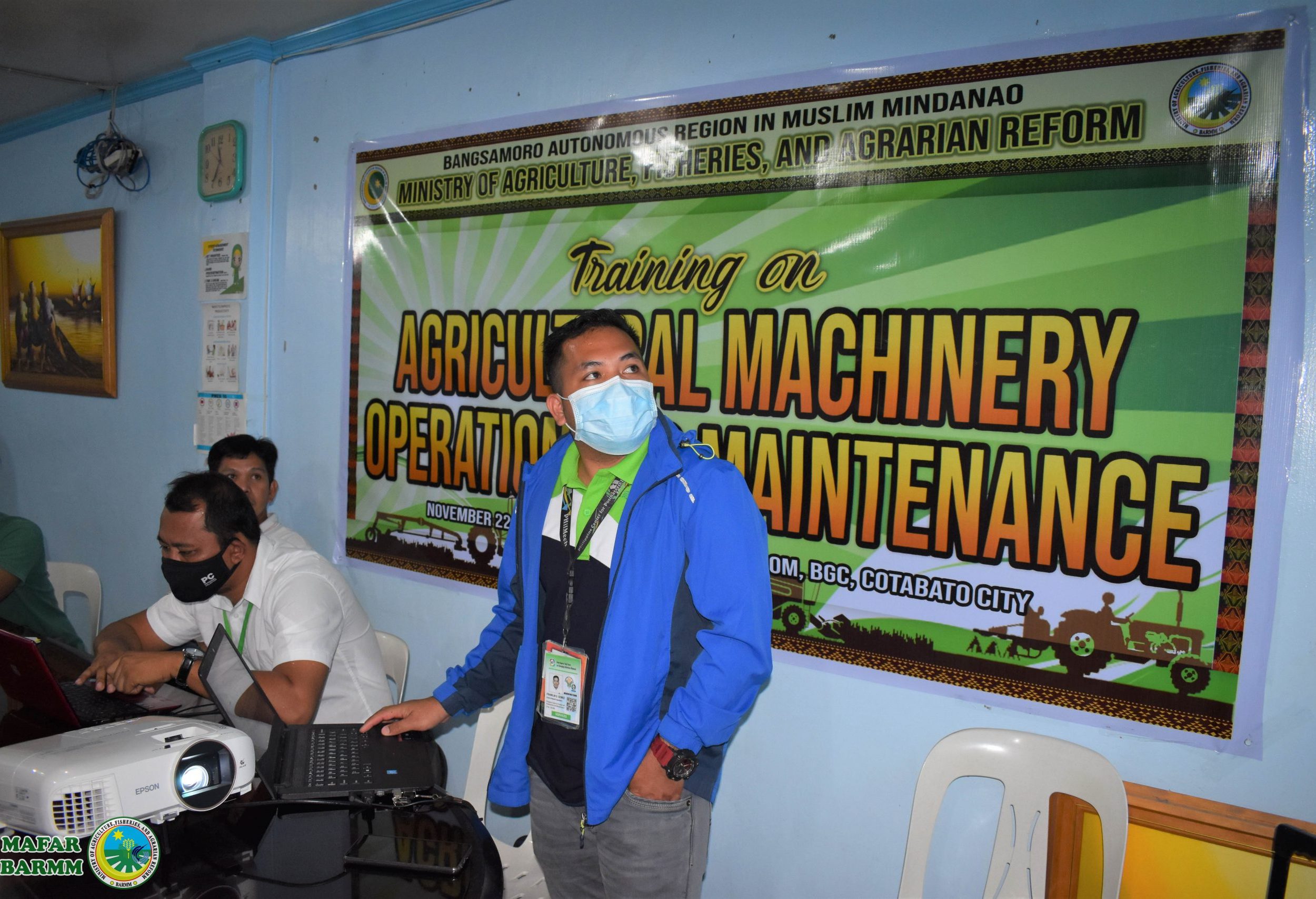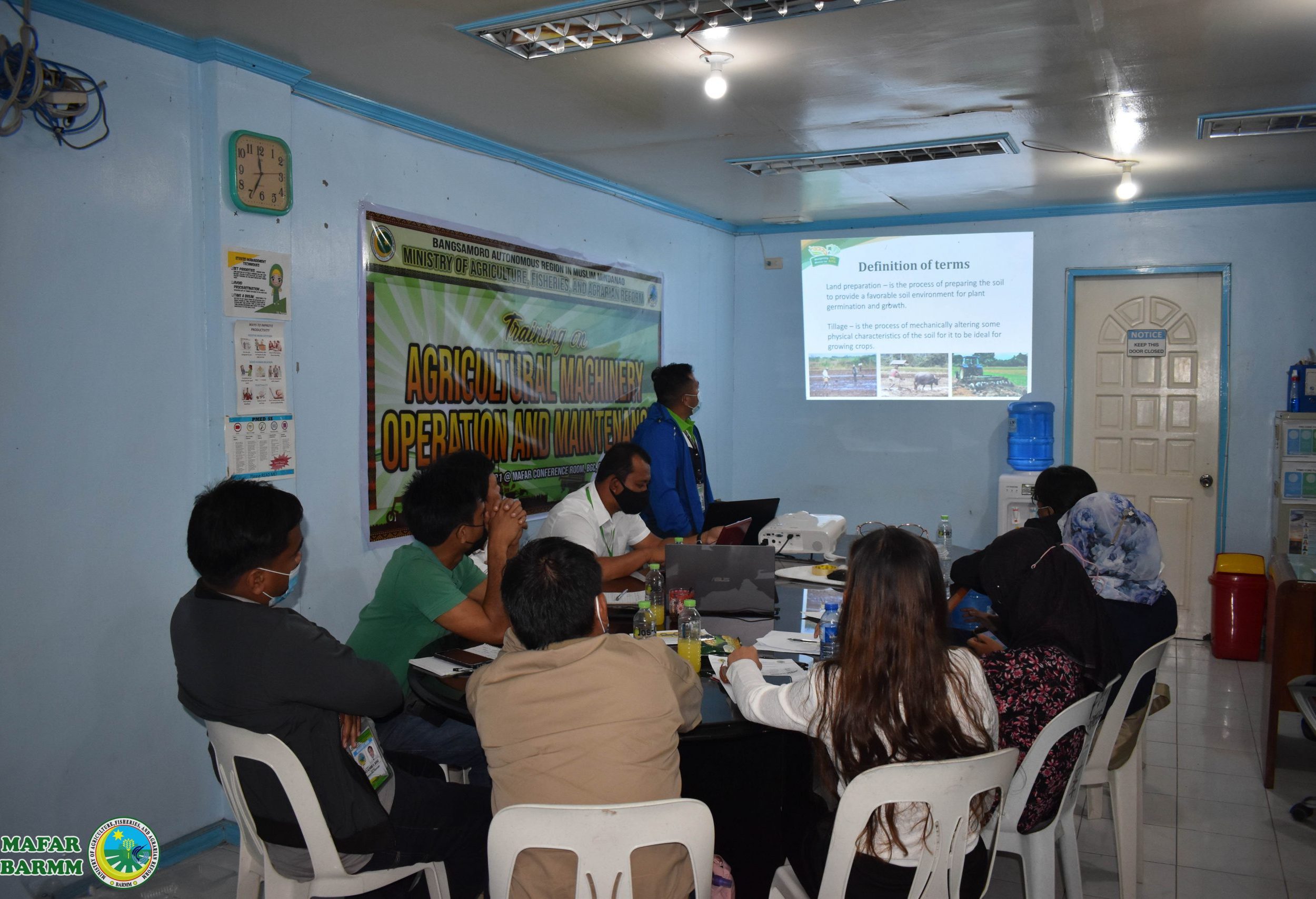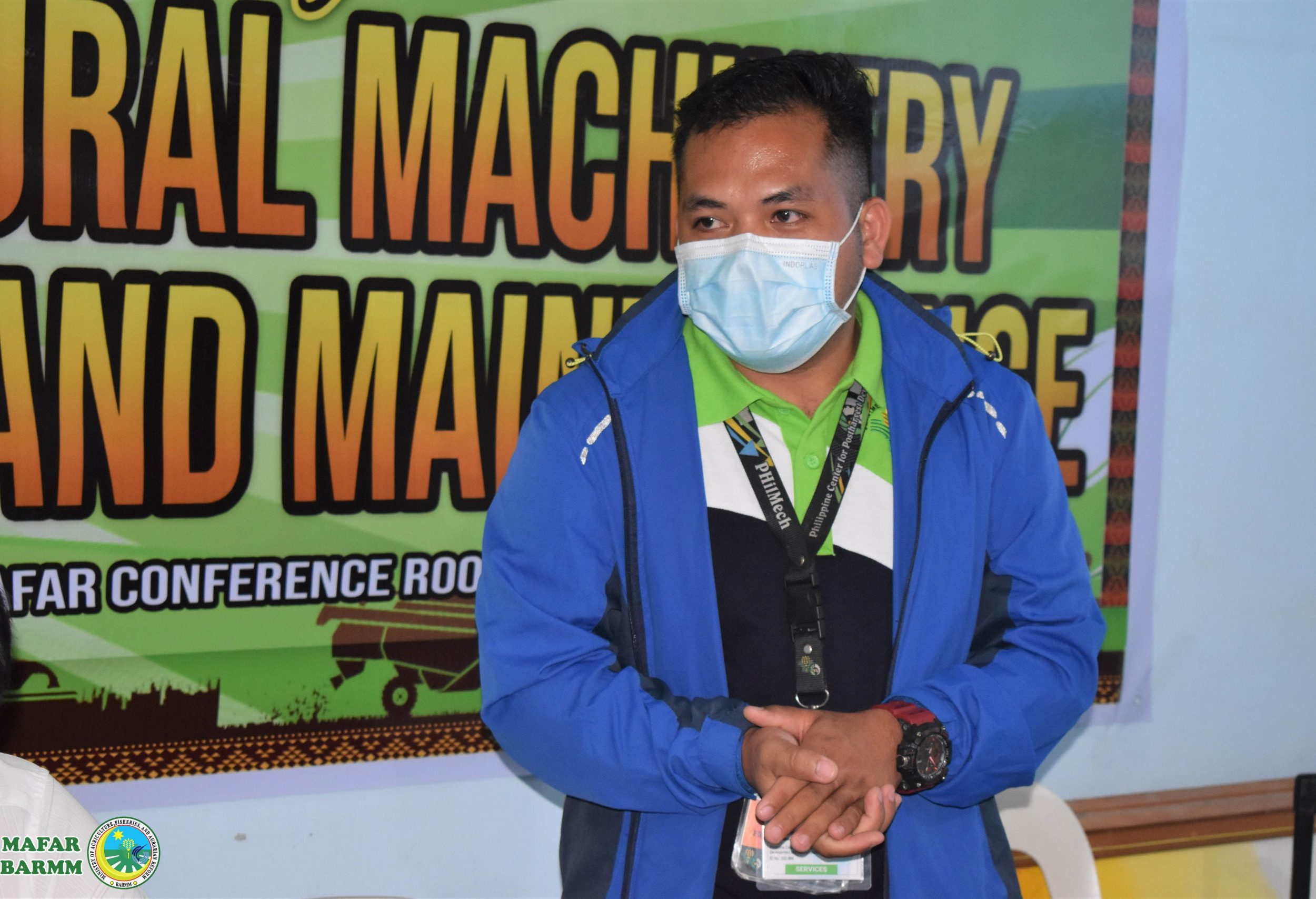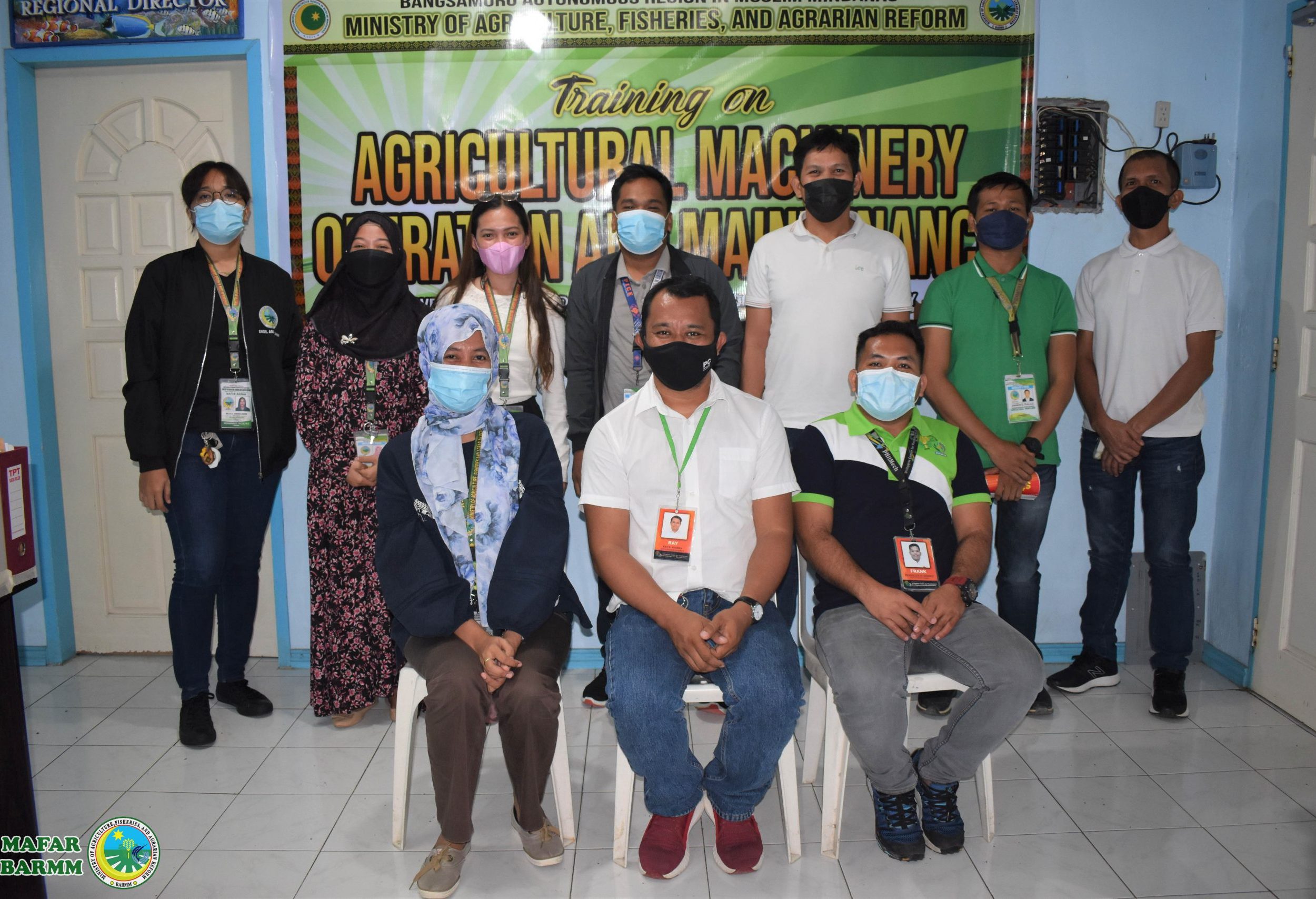MAFAR Engineering Section conduct multi- training
The Engineering Section of the Ministry of Agriculture, Fisheries, and Agrarian Reform of the Bangsamoro Autonomous Region in Muslim Mindanao has conducted three continuous training for the 20 engineers from the region and province.
Engr. Ashnairah Abdullah, Engineer III, said the training would enhance and capacitate the engineers to be more knowledgeable, prepared, and know what appropriate machinery we need to support our farmers.
On November 3-4, two-day training on Soil and Water Conservation via Google meet happened at the Engineering office
The resource speakers are Engr. Henry M. Cacayan, Engr. Bony Dela Cruz and Engr. Eduardo Alberto from the Bureau of Soil and Water Management (BSWM) gave a depth discussion on the Conservation of Soil and Water and using our resources wisely. Never plowing up and down slopes, practicing no-till or minimum tillage where possible, and planting cover crops to never leave the soil unprotected.
On November 19, the training in Electrical and Plumbing Works at the Conference room with the resource speakers, Engr. Leopoldo E. Ochia on the Fundamentals of Electrical Works and Engr. Fahad S. Manggorac on the Fundamentals of Plumbing Works.
Infrastructures with electricity and plumbing works are significant determinants of agricultural productivity. Warehouses, Training Centers, Rice, Corn, and other high-value crops processing centers, livestock and ruminant houses, and other infrastructures will be fully productive if provided with electricity, water supplies, and sewage system.
Lastly, on November 22, training on Agricultural Machinery Operation and Maintenance via Google meet at Engineering office.
Resource speakers, Engr. Franklin D. Gomez and Engr. Ray N. Adarna from Philippine Center of Postharvest Development and Mechanization (PhilMech) Davao City.
Agricultural machinery maintenance is a vital aspect of Agricultural operation and production that has been neglected or handled without caution. Agricultural machines operate in a most unpleasant environment, and such must be adequately maintained to perform their desired functions effectively. Mechanization improves labor productivity and increases per worker farm output.

